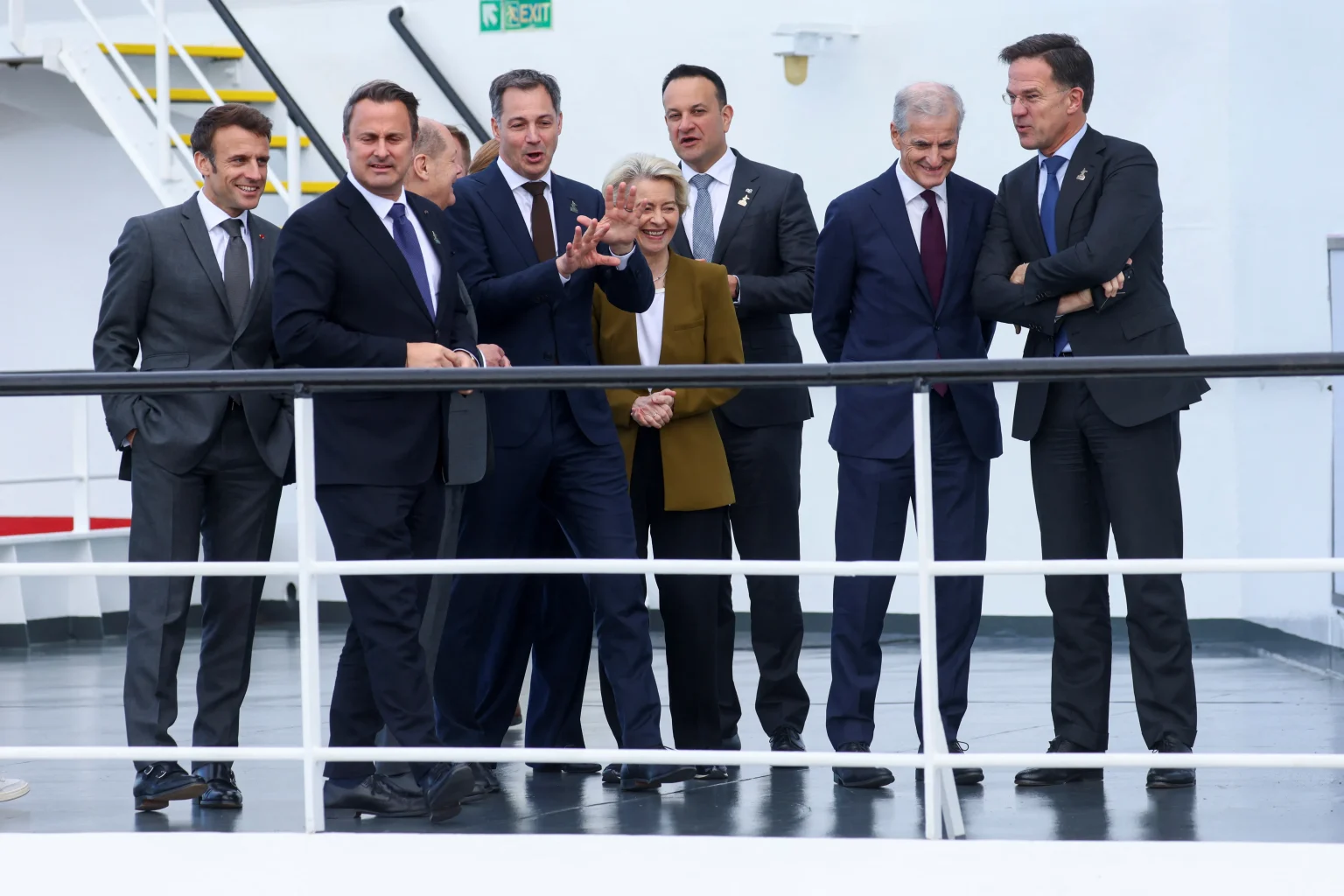EUROPEAN COUNTRIES AIM TO TURN NORTH SEA INTO GREEN POWER ENGINE To strengthen energy security by developing a combined 120 Gigawatts of power
Leaders from European countries surrounding the North Sea pledged to rapidly scale up offshore wind power generation in the region to strengthen energy security, at a summit in Ostend, Belgium.
Leaders from seven European Union countries, including France, Germany and the Netherlands, alongside non-EU countries Norway and Britain pledged to speed up their buildout of wind farms, develop “energy islands” – or connected renewable generation sites at sea – and work on carbon capture and renewable hydrogen projects in the region.
The aim is also to curb reliance on Russian gas, and reduce use of CO2-emitting fossil fuels, which remain dominant. Norway last year became Europe’s biggest gas supplier, after Russia cut deliveries to Europe following its invasion of Ukraine.
French President Emmanuel Macron called for the industrial development to be home-grown.
“We don’t want to reproduce the errors we made a few decades ago where for example we rolled out solar panels on a massive scale and we imported lots of the materials we needed. This therefore provides an opportunity for resilience, sovereignty and a ‘made in Europe’ approach,” he said.
EU Commission President Ursula von der Leyen said protecting critical infrastructure was key and that the EU was working with NATO on a stress test programme to prepare for a ‘worst case’ outcome.
In a joint statement, the countries’ leaders said they would aim for a combined 120 gigawatts (GW) of offshore wind capacity by 2030 in the North Sea and northern seas including the Irish sea, and 300GW by 2050.
That would more than quadruple the countries’ 25GW of existing North Sea wind capacity. Belgium, Denmark and Ireland plus Luxembourg, which does not have a coast, also signed the pledge.
The United Kingdom signed the declaration but Prime Minister Rishi Sunak did not attend the summit.
Final investment decisions in European offshore wind farms hit a 10-year low in 2022 as developers faced record-high inflation, soaring interest rates and volatile energy markets.


